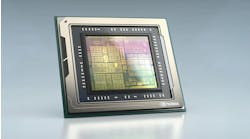Volkswagen has unveiled an electric-drive concept van that's part of the automaker's strategy to sell a million EVs by 2025. It's also geared toward more autonomous driving by the time it's to arrive in production, and could offer a method of automated freight delivery besides.
There's been a spate of news recently surrounding vans and electric drive options, with the vehicle category apparently lending itself well to the configuration both in larger and small bodies. Volkswagen's I.D. Buzz concept vehicle is aimed first at rekindling a cultural icon — the classic VW Microbus that once wielded plentiful flower power, if not nearly as much in horses — but the intent with this concept van is more futuristic than throwback.
To that end, the I.D. Buzz van will, by all appearances, be all-electric and electronic. The concept vehicle envisions "interactive connectivity and highly automated driving," with a retracting steering wheel, if one could call it that, and few other outward controls; a center console and vehicle buttons and dials found once upon a time in the dash are pretty much replaced by an iPad or plugged-in tablet computer.
More importantly in terms of freight accommodation, the I.D. Buzz concept van has electric motors situated over each axle delivering all-wheel drive and a total of 369 hp, with battery packs situated beneath the floor. That allows a stretched wheelbase and "near-zero body overhangs" beyond the front and rear wheels, with lots of flexible cargo or passenger area in between.
"The vehicle looks like a compact commercial van on the outside, even though it offers the generous interior space of a large SUV," said Volkswagen CEO Herbert Diess. Volkswagen Commercial Vehicles CEO Eckhard Scholz added that "along with a minibus version, we'll also be offering an I.D. Buzz Cargo variant for zero-emissions delivery of goods."
Further, "this is an ideal concept for an electric van, particularly for delivering packages and goods to the inner cities," Scholz said.
It's about the umpteenth example in the last 12 months or so of a potential new take on last-mile, more highly autonomous or mechanized package/ order delivery, but which idea takes in the real world — and works as it's supposed to, actually improving on current practices — is something else altogether.


